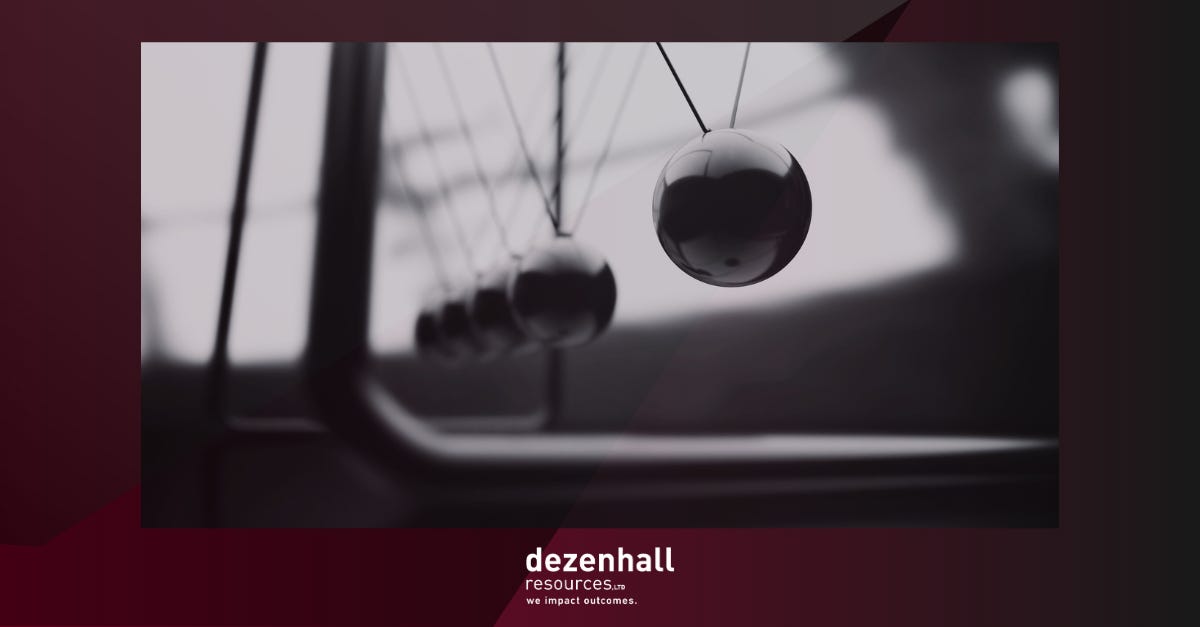Pay No Attention to This Money

Former University of Pennsylvania Board of Trustees Chairman Scott Bok penned an oped in the Philadelphia Inquirer arguing that wealthy donors should have limited influence in what happens at the schools they give money to.
Bok’s piece set off a flurry of emails and calls between friends and acquaintances who attended such schools. The upshot of the queries has been, “By becoming a trustee, board chair and major donor, what exactly was Bok trying to do? Not have influence at Penn?”
Some context and disclosures:
- Bok recently resigned his position as Board Chairman in the wake of campus unrest over antisemitism. He is a successful investment banker.
- Penn President Liz Magill also resigned after her controversial appearance before Congress, as did Harvard’s Claudine Gay after charges of plagiarism surfaced.
- I have no consulting involvement with Penn or Harvard but have shared my thoughts with prominent donors of multiple universities who have asked me about crisis management implications. I have had such people as clients and have worked with universities wrestling with bigotry, free speech, sexual assault, and controversies surrounding Diversity, Equity, and Inclusion (DEI).
- My mother went to Penn; I, Dartmouth. I have also been a trustee at a small college my daughter attended.
At first blush, I took Bok’s basic point: The idea of plutocrats dictating curricula and loading the dice for undeserving offspring to be accepted to the country’s most competitive schools doesn’t smell right. I think most would agree.
Seeking Influence? Well, Yeah.
The problem comes when we dig deeper. First, a big reason why people get involved with their alma maters is precisely because they want to influence and safeguard what goes on at the schools they love. This is a good thing. Even though I am a minor player in the donor department, when I have contributed to schools, they specifically ask if I’d like to direct funds to a particular endeavor. Sometimes I do, sometimes I don’t, but to be clear: I am donating because I want to influence an outcome. Such things have included writing programs, ovarian cancer research, and support for students with dyslexia and other learning disabilities.
In his oped, I heard Bok really saying, “I don’t like the outcome of what these donors have done.” Put differently, Bok wasn’t writing high-profile opeds on donor influence before Marc Rowan, a billionaire Penn alumnus and major donor, undertook a pushback campaign against Penn’s leadership after the school fumbled its response to antisemitism.
Reading further into Bok’s piece, I was confounded by this sentence: “And if you walked across campus as I did numerous times this semester, most often you would have been struck by how normal life seemed.” Hmm. Everything didn’t seem “normal” to Jewish students who were contending with Hamas supporters cheering on the rapes and murders of Israelis. Some of these students have sued the university, claiming that Penn fostered a hostile environment for Jews on campus. So, is this particular cohort of the campus population immune from the right to the cherished “safe spaces” we hear so much about (and universities, including Penn, have done so much to protect for the benefit of certain groups)?
Bok also wrote, “…there’s constant talk of some people being allowed to say the most outrageous things while others are punished for ‘microaggressions.’ But real-life examples of discipline for such offenses are almost as uncommon as Eagles Super Bowl appearances.”
I hear this charge a lot: the notion that “wokeness” is a bizarre right-wing fetish that doesn’t translate into real-world events or universal concerns. Given how I have spent my career, there are few things I feel more confident of than this: We are dealing with an epidemic that, regardless of intent, is hurting people across the political spectrum and played a significant role in electing Donald Trump in 2016 and may again in 2024.
Progressive writers are being routinely denied book contracts and article placement because they have been told that even lightly addressing certain subjects constitutes “appropriation” if they are not members of the community they are citing. A Harvard lecturer was recently railroaded out of a position for stating there were two sexes, albeit acknowledging gender self-identity differences (For the litany of offenses of this nature, see The Canceling of the American Mind by Greg Lukianoff and Rikki Schlott).
I have had absurd encounters teaching graduate courses, with one student suggesting I didn’t call on her, presumably because of her gender or ethnicity. After doing media commentary on how companies were handling racial unrest in the wake of the George Floyd tragedy, I received nastygrams, including one stating that I should not be permitted to publicly “mention George Floyd,” presumably because I have not shared his experience.
We will never know, as Lukianoff argues, how much silencing is taking place on campus because students fear ruin if they open their mouths. The issue is so rampant that almost all the Ivies now have organizations to address it (such as Princetonians for Free Speech). Bok’s focus on “discipline” is wide of the mark – silencing the views of the non-woke on campus does not require discipline to be effective; it is just unequal.
Slow Boil
Perhaps things on campus seemed “normal” to Bok because he wasn’t aware of what was happening in the same manner that a fish doesn’t realize that he is swimming in water. Last fall, major donors who had been blithely snorkeling suddenly found the water scalding.
Indeed, there has been a slow boil in recent years, specifically in the sense that the juveniles in detention have been running the school. A lecturer friend told me that a student complained that he stood in front of the class with his arms folded across his chest, which the student characterized as “the stance of a slaveholder.” We asked each other if this was what the well-meaning advocates of DEI had in mind when the movement began.
In the past month, big donors have tried to be the grown-ups who take back the academy. Grown-ups might have resisted having brazenly antisemitic speakers at a Penn literature festival — there are, after all, writers concerned about the situation in Gaza that don’t traffic in annihilation rhetoric. Grown-ups might have advised the testifying university presidents to concede that it might make sense to temper their schools’ free speech policies to limit the ability of groups to call for genocide and glorify murder, kidnapping and rape.
We can be pretty sure what answers the presidents would have given had the issue been speech calling for the genocide of certain other groups. Indeed, grown-ups exercising their influence might have pointed out that common decency could play a role in the application of university policies upon calls for genocide.
No one really likes the influence of those they disagree with, regardless of how open-minded they claim to be. Having worked closely with media organizations for over forty years, many are like industrial concerns when attacked: Deny, attempt to destroy the pest, and make excuses when caught. Free speech doesn’t mean free speech as much as it does MY speech. When a major news group takes down a target, it’s journalism. When the target demands corrections with lawyers or asks surrogates to opine, it’s bullying.
Elon Musk has been targeted by media organizations who abhor his content but champion the First Amendment at every (other) turn. In other words, your free speech is hate (and sometimes Musk’s is hateful), but mine is simply passion.
Alarm
While Bok surely didn’t intend it, his oped promulgated an ugly subtext that’s crept into the public conversation since October 7: Striking back against Hamas is “disproportionate”; Some in the same feminist circles that once admonished us to “believe all women” don’t find the documented cases of mass rape, torture, and murder of Israeli women credible; Then there’s the notion that like-minded parties sticking together is clannishly dirty; Certain parties with a grievance are powerful enough to suck it up and take it; And now we hear a referee’s whistle when specific influential donors reach for their checkbooks.
While Bok states that he is “troubled” by “hurtful rhetoric,” the backhanded thrust of his oped is to trivialize the harm done.
A heavy-hitting Ivy League donor — call him Fred — told me what’s been motivating his recent activism, and it’s the opposite of what Bok suggested. Fred felt he had been “asleep at the switch” for not being more mindful of where his funding had been going and said other big donors were in the same position. Fred was angry with himself for having passively allowed his money to be directed toward activity hostile to his interests and sensibilities. He and others, feeling magnanimous in the wake of their success, wrote big checks without paying close attention to what they had been funding, including some of the downstream implications of DEI. In one case, Fred found out he had given money to an endeavor that violently (literally) opposed what he thought he had been supporting.
Donors like Fred are seeking to make amends for their decades-long passivity — and are using their resources to do it. They are acting because on October 7 —even before there was a military response to Hamas’ atrocities — they saw the reactions on Ivy League campuses. The alarm had gone off, and the grown-ups woke up in boiling water.

